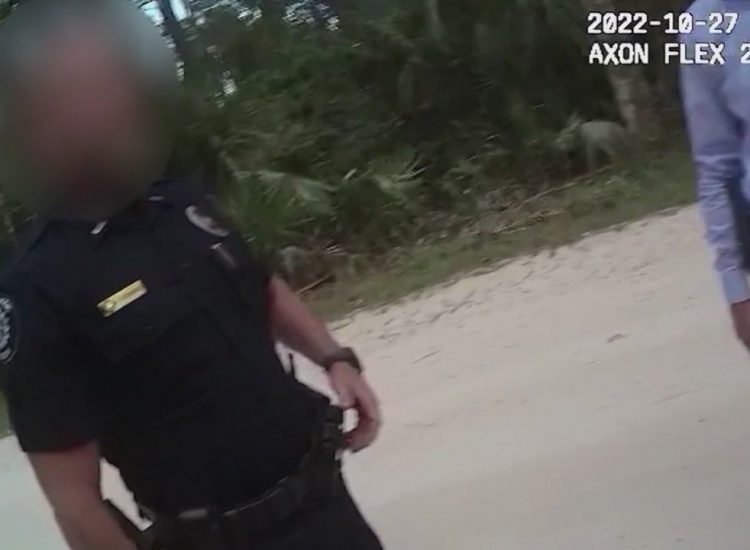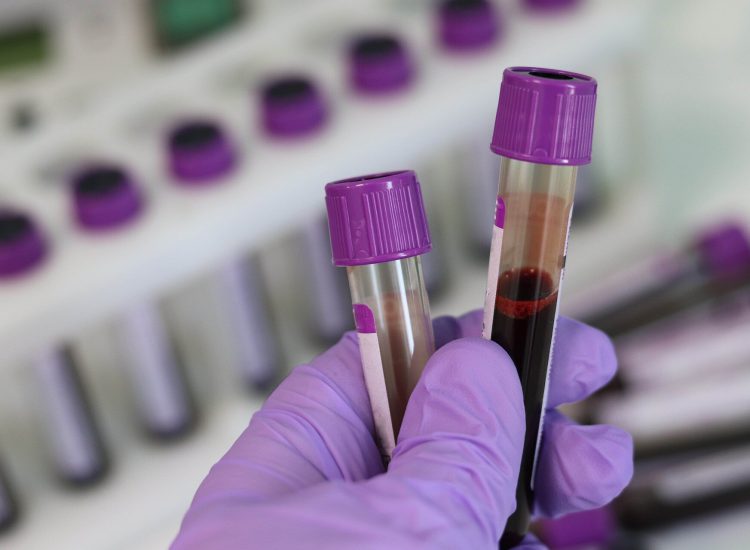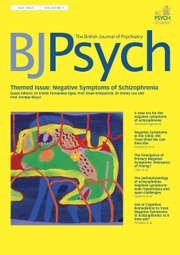Editor’s Observe: Over the subsequent a number of months, Mad in America is publishing a serialized model of Peter Gøtzsche’s guide, Important Psychiatry Textbook. On this weblog, he discusses that despair drugs enhance mortality, and that psychiatry errors withdrawal results for relapse. Every Monday, a brand new part of the guide is printed, and all chapters are archived right here.
Despair drugs enhance whole mortality considerably
In 2015, I attempted to learn how many individuals are killed by the three main drug teams, despair drugs, benzodiazepines and related medication, and psychosis drugs.7:307 I used essentially the most dependable analysis I might discover and restricted my analyses to sufferers not less than 65 years of age. The estimated variety of drug deaths in Denmark (inhabitants 5.8 million) based mostly on present utilization was 2831 for despair drugs, 721 for minor tranquillisers, and 141 for main tranquillisers. I estimated that fluoxetine alone had killed 311,000 folks worldwide within the age group 65 and above as much as 2004.
The excessive variety of deaths on despair drugs could also be stunning. It’s partly because of the truth that so many aged folks take them (12% within the age group 65 to 79 and 19% in these not less than 80 years outdated).7:310 A UK cohort research of 60,746 sufferers older than 65 confirmed that SSRIs result in falls extra usually than if the despair isn’t handled, and that the medication kill 3.6% of sufferers handled for one yr.447 The research was very rigorously carried out, e.g. the sufferers had been their very own management in one of many analyses, which is an efficient technique to take away the impact of confounders.
A textbook suggested that within the aged, we must always strive a despair capsule even on a imprecise suspicion of despair as a result of it may be tough to differentiate between dementia and despair, and since the implications for the sufferers are very critical if we overlook “this treatable situation.”18:121 This recommendation is lethal. Even when the demise danger within the UK research for some purpose was exaggerated, it’s the finest proof we’ve got, and we’ve got an obligation to comply with the proof.
The psychiatrists should not eager to listen to about how lethal their medication are, and they didn’t talk any knowledge about this of their textbooks. Completely nothing.
In October 2017, I gave two invited talks on the World Psychiatric Affiliation’s seventeenth World Congress of Psychiatry in Berlin.8:27 This was organized by Peter Lehmann, a German reformer who desires to make psychiatry extra human, with self-determination and fewer use of poisonous medication. He contacted the worldwide advisory committee and urged them to ask “customers/survivors of psychiatry” as audio system, which they did, they usually additionally invited me.
I spoke at two symposia. One was an Worldwide withdrawal symposium that highlighted the rising hole between data about withdrawal issues and the dearth of assist for withdrawal. The opposite was Responding to the horrifying discount of psychiatric sufferers’ life expectancy.
Once I spoke about withdrawal from psychiatric medication, there have been round 150 psychiatrists within the viewers. The ambiance was hostile, and a number of other folks requested irrelevant questions resembling whether or not I believed that lithium labored.
Fifteen minutes later, I spoke on the different symposium and my title was Why are psychiatric medication the third main explanation for demise after coronary heart illness and most cancers?7 Three psychiatrists out of the over 10,000 on the congress attended. They refused to provide interviews and punctiliously prevented being filmed by a documentary movie workforce that adopted me to Berlin, as in the event that they had been on their technique to see a porn film. This was a no-go zone. A taboo.
In the event you learn the package deal inserts or lookup related printed papers, you’ll realise that psychiatric medication have harms that may result in falls and visitors accidents.448-453 These harms embody sedation, dizziness, orthostatic hypotension, confusion, and impaired coordination and stability. Despair medication double the chance of falls and hip fractures in a dose-dependent method,452,453 and inside a yr after a hip fracture, about one-fifth of the sufferers will probably be lifeless.
These harms gained’t be seen by the docs, as many individuals fall and break their hip anyway. The medication are subsequently silent killers, and docs don’t study something from their much-overvalued medical expertise, which, in psychiatry, leads them astray most of the time.
Despair drugs don’t stop relapse
It’s difficult that withdrawal signs and illness signs are sometimes the identical. If a drug is stopped abruptly or over a brief time frame, and the affected person turns into depressed, it doesn’t imply that the illness has come again.
Nonetheless, when the sufferers have tried to cease taking their drug due to its harms or as a result of they really feel it doesn’t work, psychiatrists, different docs, social employees, and relations will often inform them that the signs reveal that they nonetheless want the drug.
It’s an uphill battle to attempt to cease taking a despair capsule,8 however often, what we’re seeing is whatI name an abstinence despair. This time period is a exact description of what occurs, however I is likely to be the one individual to make use of this time period. A search on PubMed with “abstinence despair” within the Title subject yielded no data, and never even a Google search discovered any. I shall clarify under why it’s appropriate to say that sufferers grow to be depending on despair drugs, regardless that mainstream psychiatry continues to disclaim this.7,8,90
My new idea ought to grow to be a part of the language psychiatrists use and ought to be included within the illness manuals. I outline abstinence despair as a despair that happens in a affected person who isn’t at present depressed however whose despair capsule is stopped abruptly or over a couple of weeks. Its hallmark is that the depression-like signs come shortly (relying on the half-life of the drug or its energetic metabolites) and disappear inside hours when the complete dose is resumed. Reintroducing the drug can subsequently be considered a diagnostic take a look at separating an abstinence despair it from a real despair, as true depressions don’t reply shortly to despair drugs.
A 1998 trial of 242 sufferers with remitted despair illustrates the distinction between an abstinence despair and a real despair.45 After they’d grow to be properly, the sufferers acquired open upkeep remedy with fluoxetine, sertraline, or paroxetine for 4-24 months. They then all of the sudden had their remedy modified to a double-blind placebo for 5-8 days, however the timing of the therapy interruption was unknown to them and their clinicians.
The investigators had developed a 43-item checklist based mostly on withdrawal signs reported within the literature, and after the placebo interval, sufferers had been requested if they’d skilled any of those. This guidelines strategy will are inclined to exaggerate withdrawal signs, and the research was funded by Eli Lilly, the maker of fluoxetine, which had an apparent curiosity in exhibiting that fluoxetine causes fewer withdrawal signs than the 2 different medication due to the very lengthy half-life of its energetic metabolite, about one to 2 weeks.
The three commonest withdrawal signs had been worsened temper, irritability, and agitation, which aren’t indicators of a relapse of the despair. As anticipated, comparatively few folks had signs on fluoxetine:
On sertraline or paroxetine, 40 of 122 sufferers had a rise of their Hamilton rating of not less than 8, which is a clinically related enhance.
There would have been many extra withdrawal signs if the medication had been withdrawn for 2-3 weeks, notably on fluoxetine, however even with an interruption of solely 5-8 days, 25 of the 122 sufferers on sertraline or paroxetine fulfilled the authors’ standards for despair.
This research reveals why docs get it improper once they suppose the illness has come again. We would ask what number of sufferers are more likely to get a real despair in a random week in a bunch of 122 sufferers whose depressions have remitted. I labored this out based mostly on a research of 362 highschool college students who had skilled a number of episodes of despair.454 Of the sufferers who recovered, 5% relapsed inside six months and 12% inside a yr, which suggests a slightly fixed relapse charge over time. Utilizing these knowledge, I calculated what the anticipated variety of sufferers relapsing is. That is 122 x 12% x 6.5/365 = 0.03, which means that not a single affected person of the 22 that “relapsed” in Lilly’s research would have relapsed if they’d not been uncovered to a chilly turkey withdrawal.
Two years later, Eli Lilly performed one other unethical trial with the same design that harmed the sufferers.305 The abstinence signs after paroxetine withdrawal had been extreme. The sufferers skilled “statistically considerably worsened severity in nausea, uncommon desires, tiredness or fatigue, irritability, unstable or quickly altering temper, problem concentrating, muscle aches, feeling tense, chills, bother sleeping, agitation, and diarrhea throughout placebo substitution.”
The varied harms the sufferers suffered due to Lilly’s merciless trial design enhance the chance of suicide, violence, and murder.7 This was recognized lengthy earlier than the trials had been carried out.2,7,21
Unsurprisingly, the sufferers that had been harmed after withdrawal of paroxetine reported “statistically vital deterioration in performing at work, relationships, social actions and total functioning.”21
It is just in chilly turkey trials I’ve seen such outcomes. In line with the American Psychiatric Affiliation’s illness handbook, DSM-5, main despair is current when the affected person reveals 5 or extra of 9 signs that “trigger clinically vital misery or impairment in social, occupational, or different necessary areas of functioning.”8 Given how the dysfunction is outlined, it is senseless that drug trials keep away from utilizing these outcomes, that are way more necessary and related than a rating on a ranking scale. The reason being after all that the drug business is aware of that their drugs would not have constructive results on these important outcomes.
Since psychiatrists often confuse withdrawal signs with relapse, it’s not stunning that two textbooks claimed that if the drug is stopped too early,16:276,17:661 it will increase the chance of relapse, and one famous that not less than 50% will relapse.16:276
The misunderstanding results in dangerous recommendation about long-term therapy. A continuation section of 6-12 months after remission is suggested,16:276,18:126 and the longer, the higher,16:276 e.g. by extreme despair with imminent suicide danger.18:126 This recommendation is lethal. The medication would possibly push a affected person in imminent hazard of suicide over the sting. The identical textbook claimed, with no references, that the preventative impact of psychotherapy isn’t so pronounced as that of medicine.18:126 This false data can be lethal7,272,381-385 as a result of psychotherapy halves the chance of suicide.272
They claimed that if a affected person has had two depressions inside 5 years, the physician ought to take into account persevering with with the drug for an additional yr; if three depressions, for 5-10 years or lifelong.18:127 If onset after 50-60 years of age, the therapy ought to be lifelong as a result of the chance of recurrence is sort of 100%. It was claimed that a wonderful preventative antidepressant impact is achieved. This recommendation can be deadly due to the excessive demise charge in aged folks given despair medication.7:310,447
The absurdities had been countless. A 3rd guide beneficial persevering with with the drug for a similar variety of years because the variety of depressive episodes.17:360 Even when we think about there was a drug that labored for despair and prevented new episodes, it will be weird. The recommendation signifies that the poorer the impact, together with no impact, the longer the affected person ought to take the drug. If seven depressions, the affected person could be “sentenced” to an extra seven years on the capsule and be referred to as treatment-resistant as properly. This provides connotations to felony legislation. The extra treatment-resistant a felony is, i.e. the extra offences and jail sentences, the longer the final jail sentence will probably be.
Some pages later, the identical guide claimed that the chance of relapse in bipolar is about 85% however solely 35% when medically handled.17:377 That is additionally improper. All upkeep research are significantly flawed as they measure withdrawal results within the placebo group, not relapse.
It was claimed that quetiapine considerably reduces relapse of mania—which is unlikely to be true—and that such an impact has not been proven for different psychosis drugs.16:305 It’s much more unlikely that one psychosis capsule, and never all of the others, ought to work. That is plain improper.436
This textbook beneficial upkeep therapy already after a single manic episode, for 2-10 years or lifelong, until attributable to psychoactive medication.16:305 It was not defined if this solely means road medication or is also pharmaceuticals, however many psychiatric medication could cause mania, together with despair drugs and ADHD medication.7
The guide defined that abrupt discontinuation at all times will increase the chance of relapse as a result of it’s anticipated that the illness will final a very long time.16:306 This assertion is ludicrous. It’s not as a result of the illness will final a very long time however as a result of the sufferers get withdrawal signs. This has been described for all psychiatric drug lessons.135
Gradual cessation over not less than 4 weeks16:584,19:295 or a few months18:239 was suggested, however just one guide suggested notably small dose modifications by the tip.19:295 One guide supplied dangerously deceptive recommendation, because it postulated that withdrawal signs may very well be prevented if the drugs had been discontinued over two weeks.17:360 Elsewhere on this guide,17:660 the authors beneficial what they referred to as sluggish withdrawal over 1-2 months, which isn’t sluggish.8,136
In line with the textbooks, about 20-30percent18:239 or one-third16:584 will get withdrawal signs by abrupt cessation. This isn’t appropriate both. Half of the sufferers will undergo from such signs after despair drugs, and in half of them, they are going to be very extreme.136
The details about withdrawal signs diverse however included dizziness, headache, tired-ness, gastrointestinal signs, influenza-like signs, insomnia, anxiousness, irritability, agitation, sweating, unhappiness, elevated dreaming, muscle contractions, and electrical zap emotions within the extremities.16:584,17:360,17:660,18:239,19:295 Absent had been essentially the most critical harms, akathisia, elevated danger of suicide and violence, and abstinence despair.
Two books claimed that the sufferers don’t grow to be depending on despair drugs,17:661,18:239 and one in every of them famous that, due to this, relapse shouldn’t be misinterpreted as withdrawal signs, and it added that recurrence will sometimes happen a number of weeks after stopping therapy.18:239 A 3rd guide famous that withdrawal signs often happen inside a couple of days, various from someday to 2 weeks, and that the length varies from a couple of days to a number of weeks.19:295
These statements are additionally improper. Despair drugs result in dependence (see web page 79), and withdrawal signs can happen a lot later, after months, e.g. if the affected person turns into confused, they usually could final for years.8,136 One other guide famous that one-third would get withdrawal signs if the drug was all of the sudden stopped and suggested tapering over not less than 4 weeks however didn’t clarify how.16:584
In a single guide, the authors warned that about 40% of sufferers with bipolar cease therapy and that this carries an excellent danger of recent episodes.16:296 Clearly, the sufferers don’t just like the medication however the psychiatrists don’t care.
The widespread skilled denial of the drug harms sufferers expertise was displayed once I talked about on the TV information in 2011 that despair drugs can change the character. In a commentary to this, the president of the Danish Psychiatric Affiliation wrote that it’s deceptive to give attention to a facet impact that’s so scary for sufferers, and which is extraordinarily uncommon.455
It isn’t. Six years earlier, Danish psychiatrists had printed a research during which 43% of 493 sufferers agreed that the therapy might alter their character and 42% that they’d much less management over their ideas and emotions.89 82% agreed that so long as they took the drugs, they didn’t actually know in the event that they had been crucial. The sufferers’ replies correspond intently with what different researchers have discovered,308 however the Danish psychiatrists refused flatly to consider what the sufferers had informed them. They referred to as the sufferers ignorant and wrote that the sufferers wanted “psycho-education.” Nonetheless, the relations had the identical opinion because the sufferers in regards to the drugs. Maybe they need to even be taught they had been improper?
***
To see the checklist of all references cited, click on right here.
















